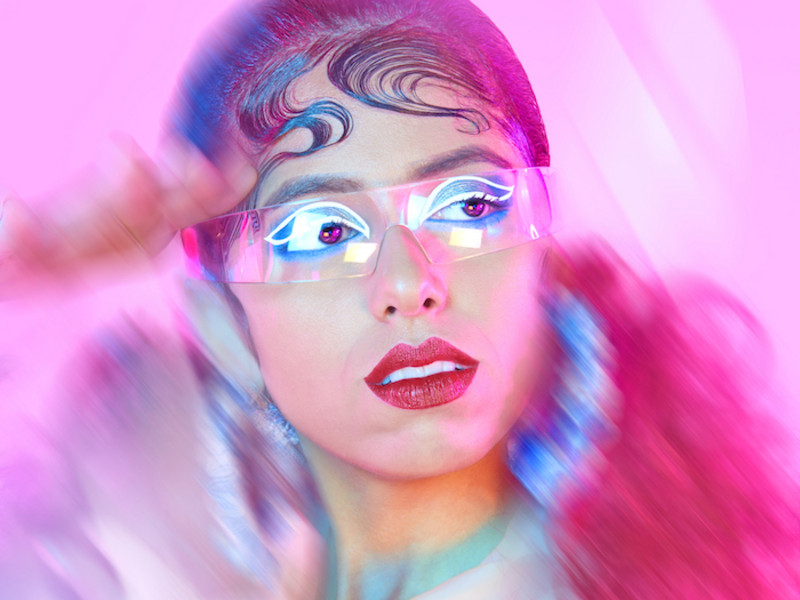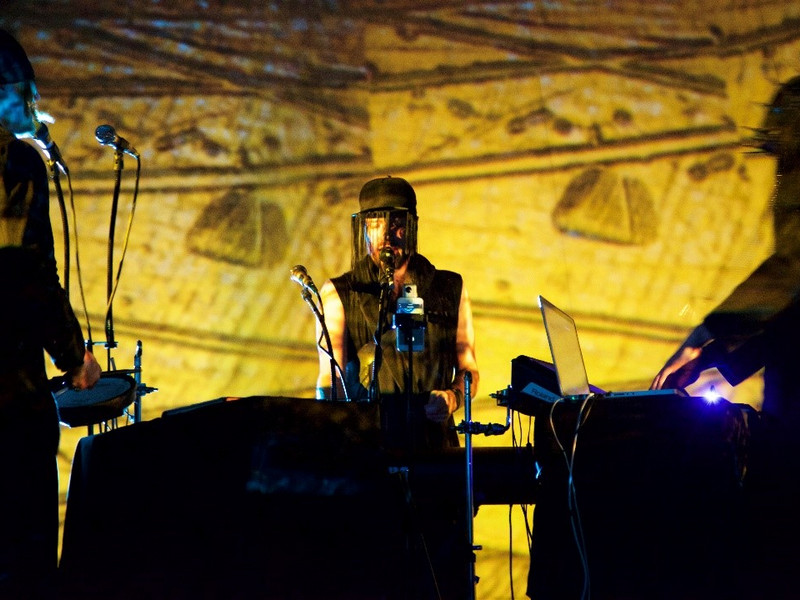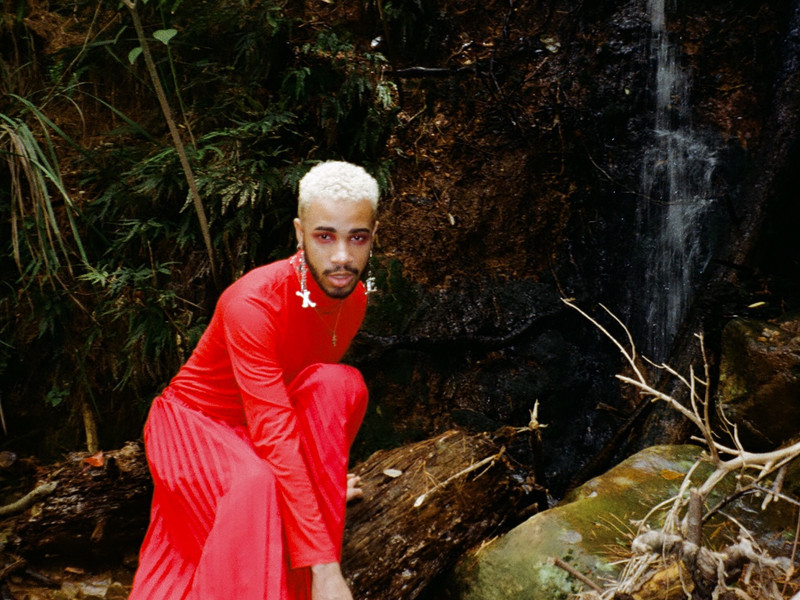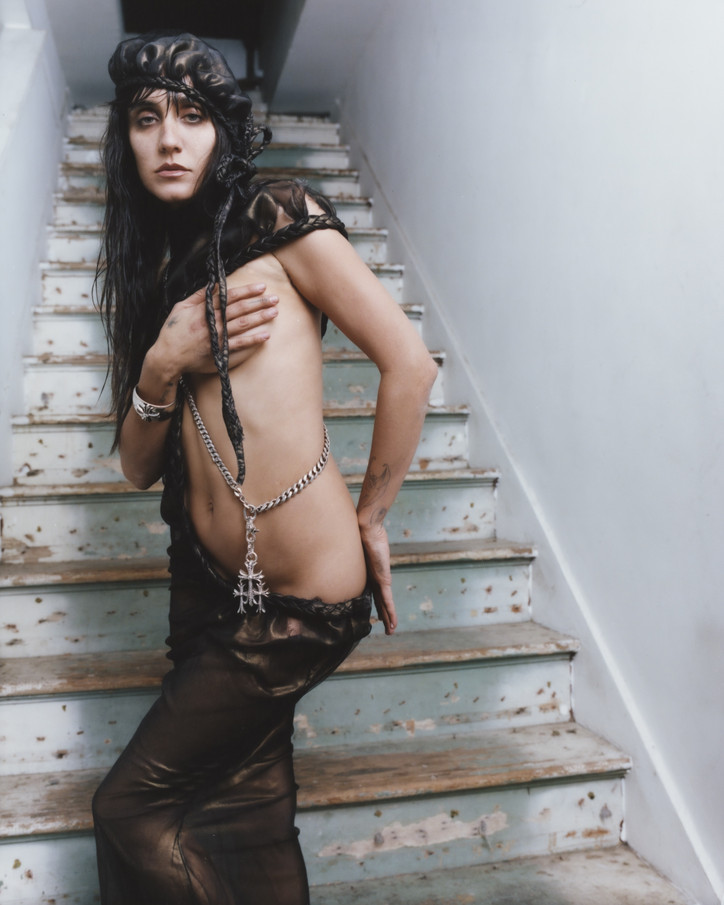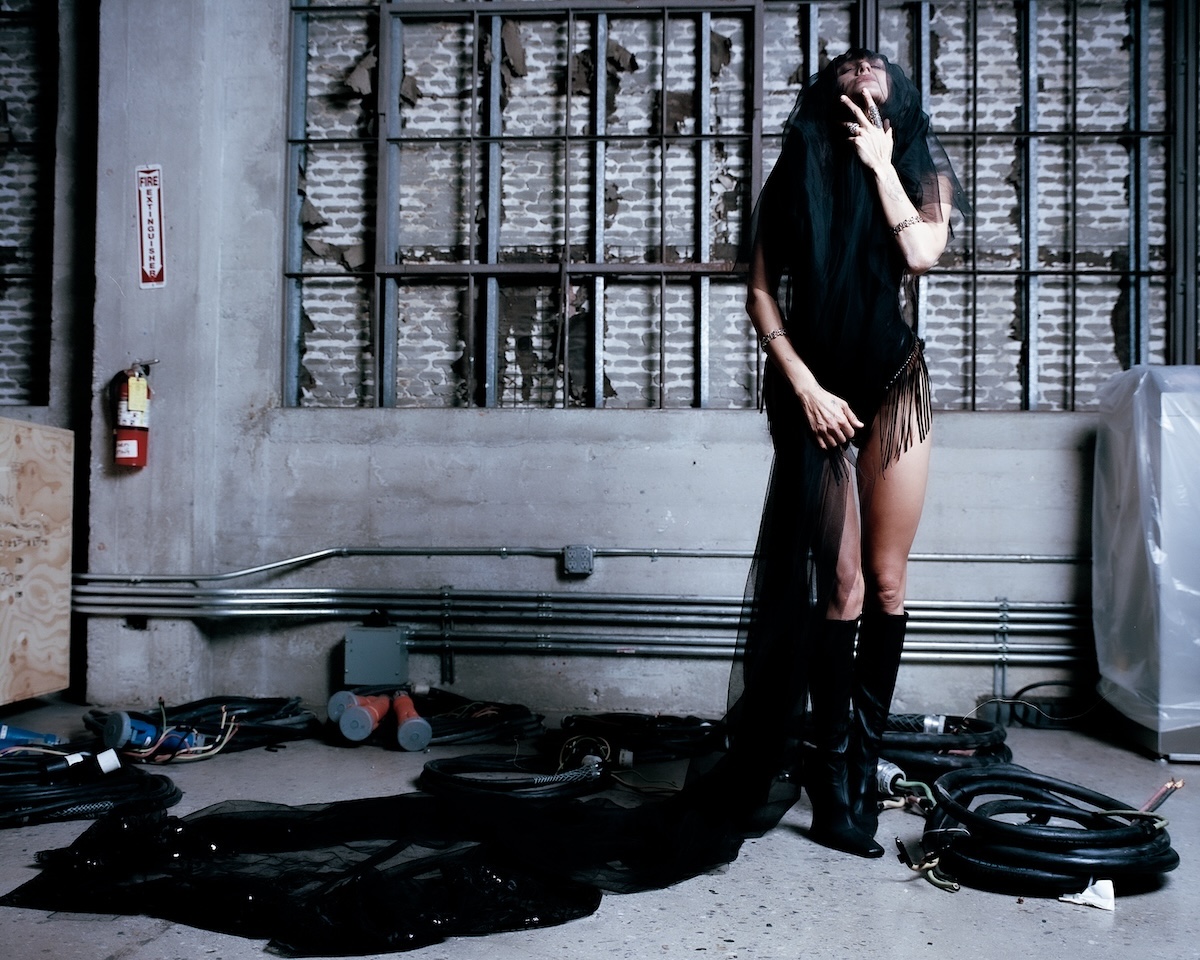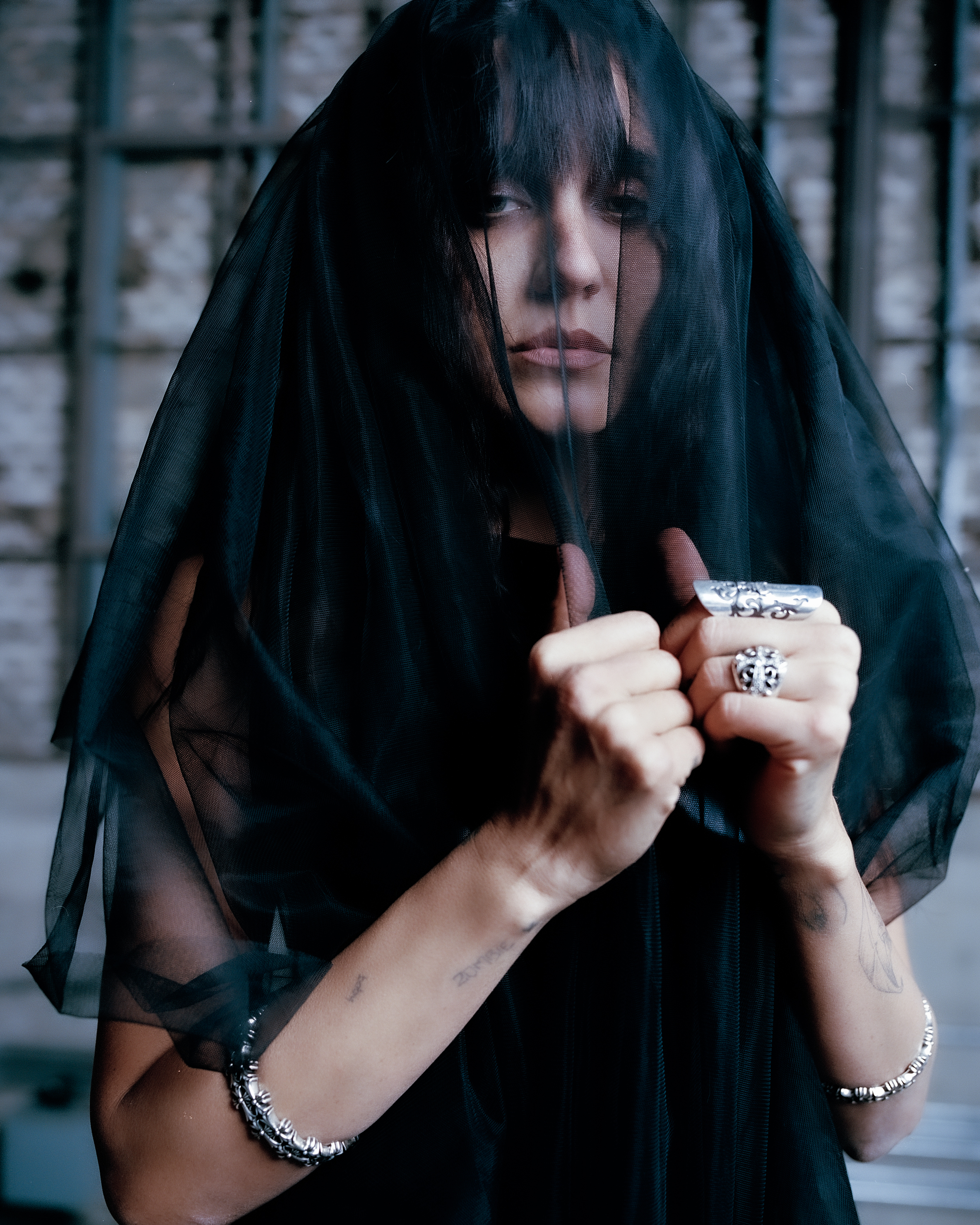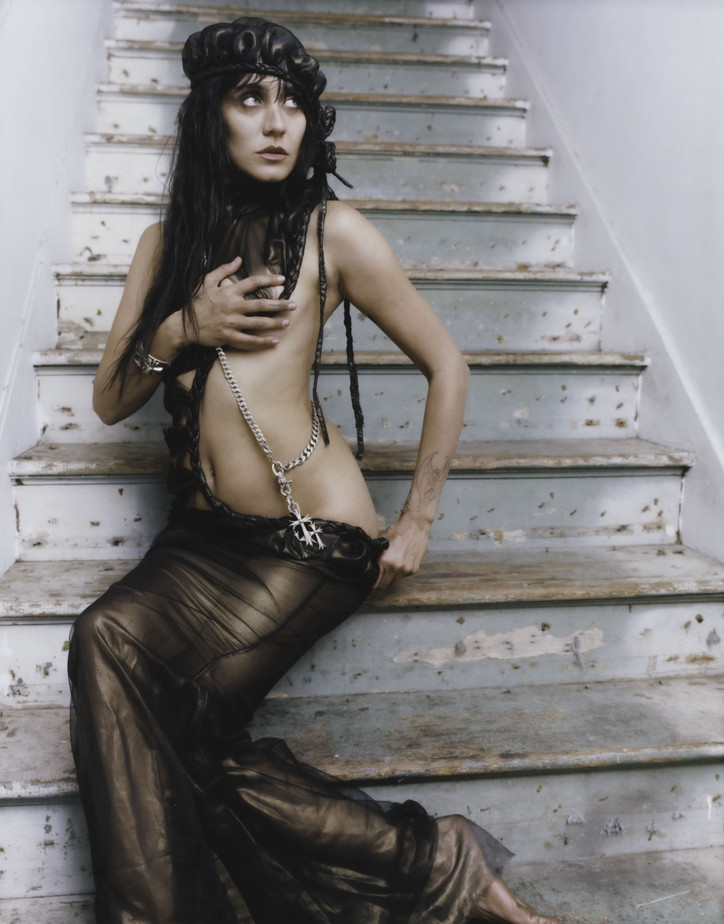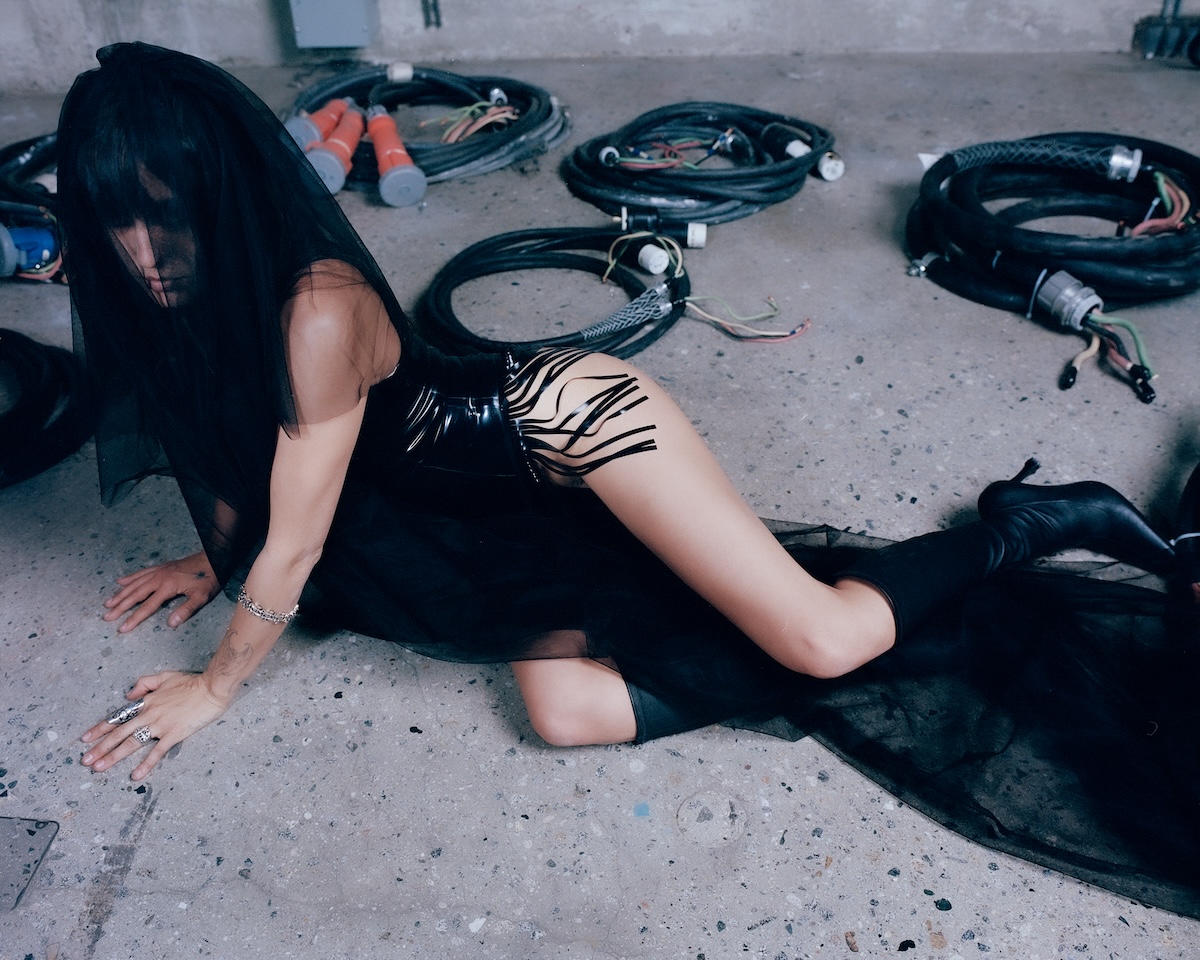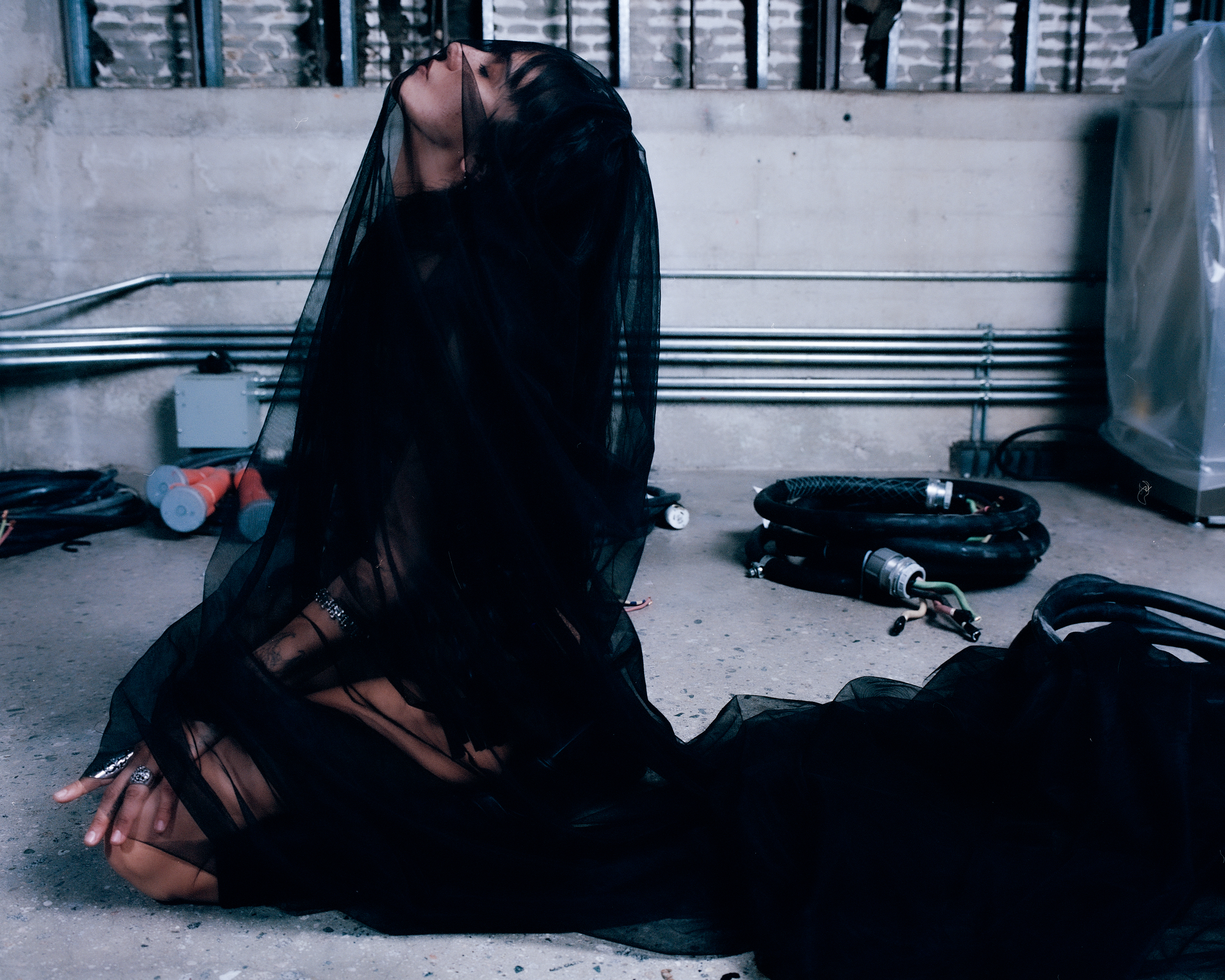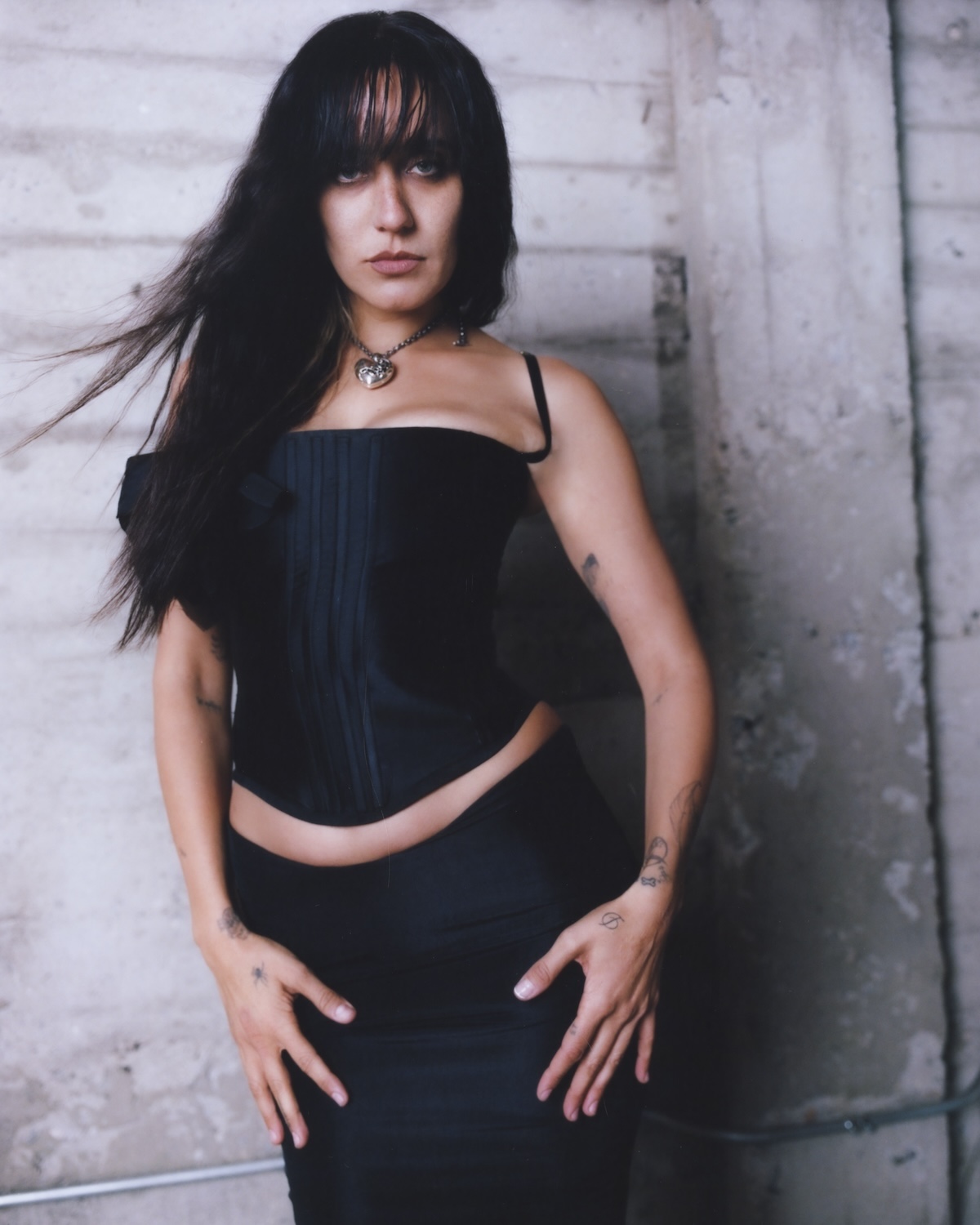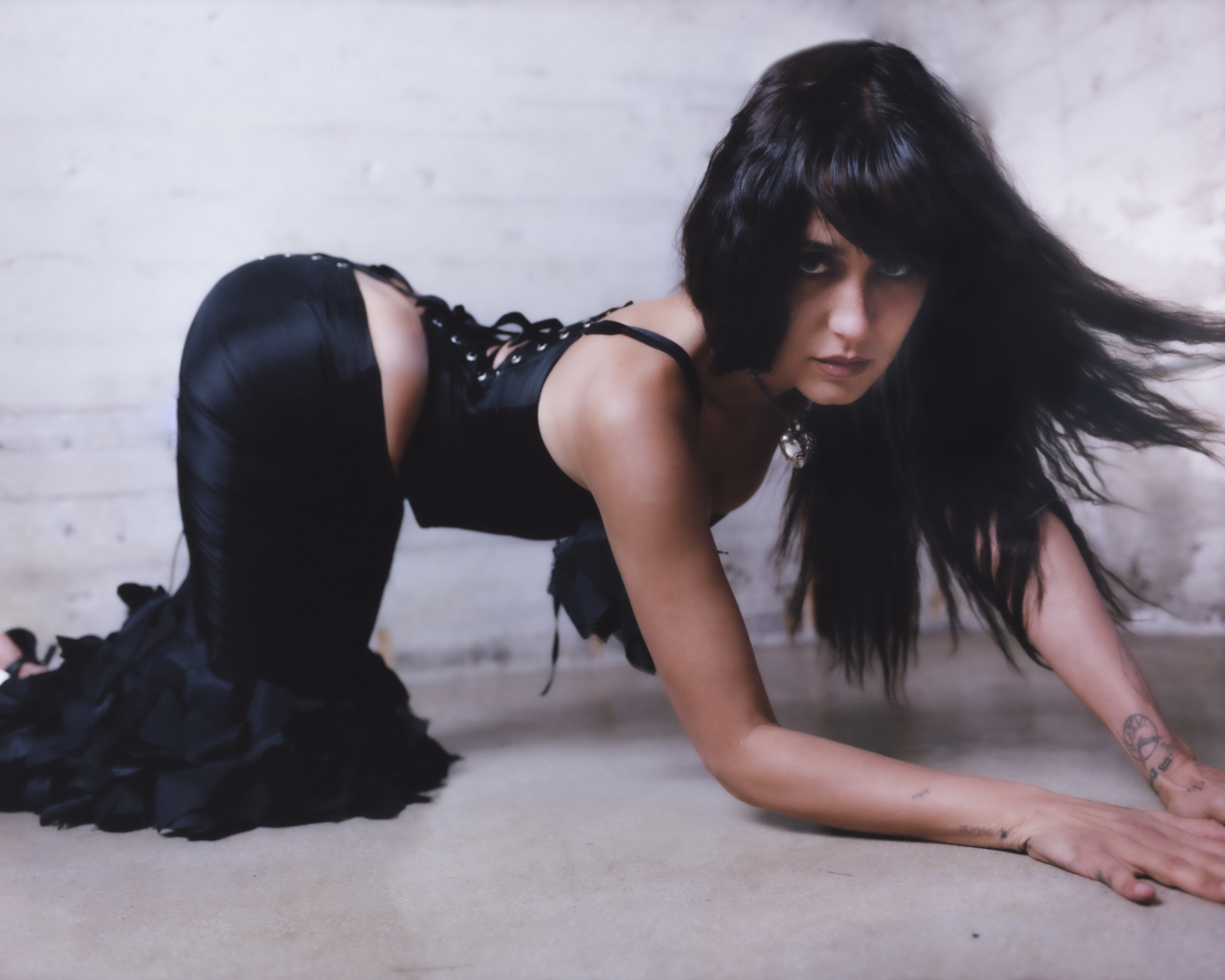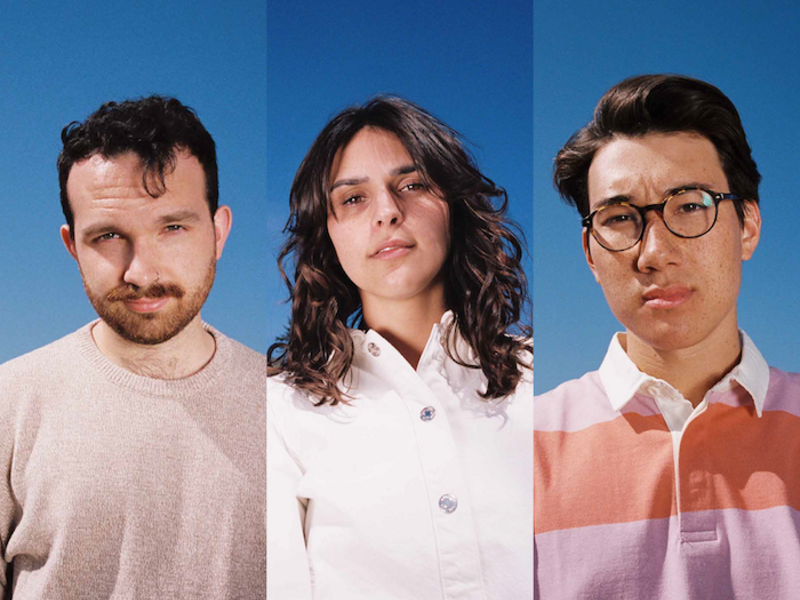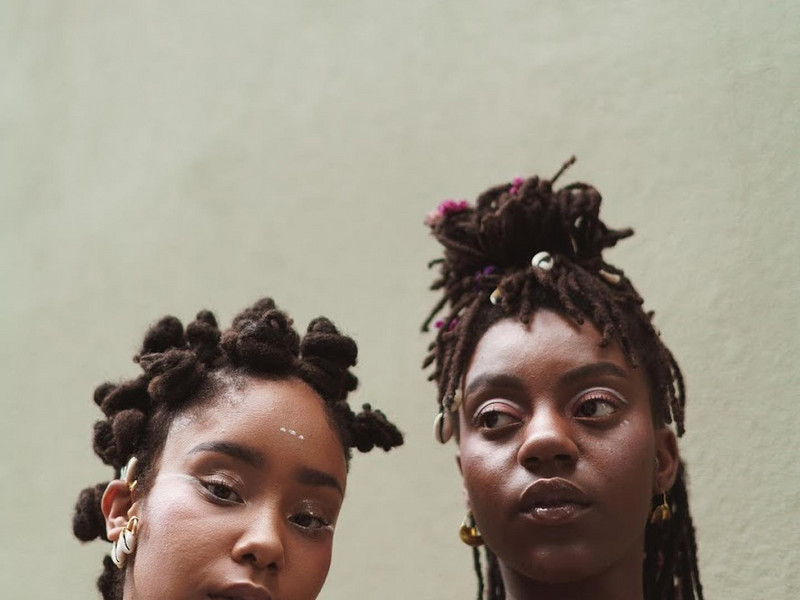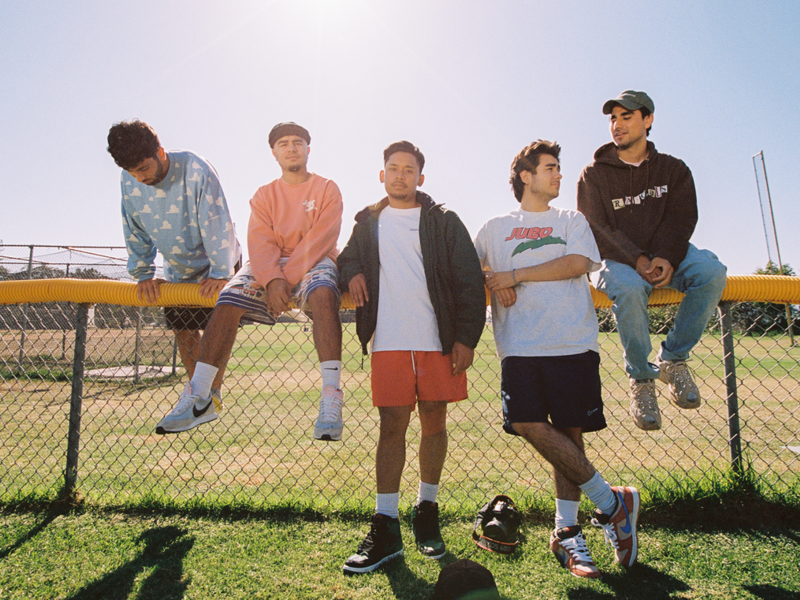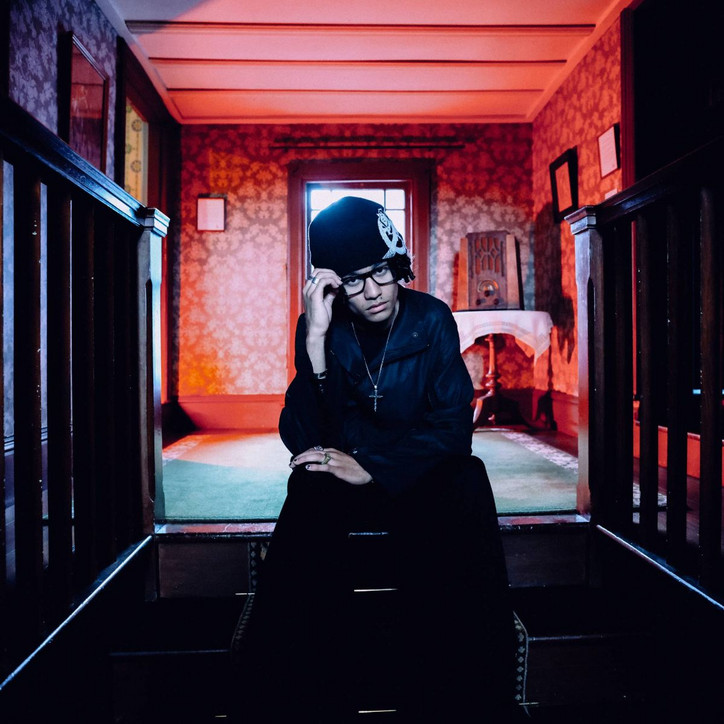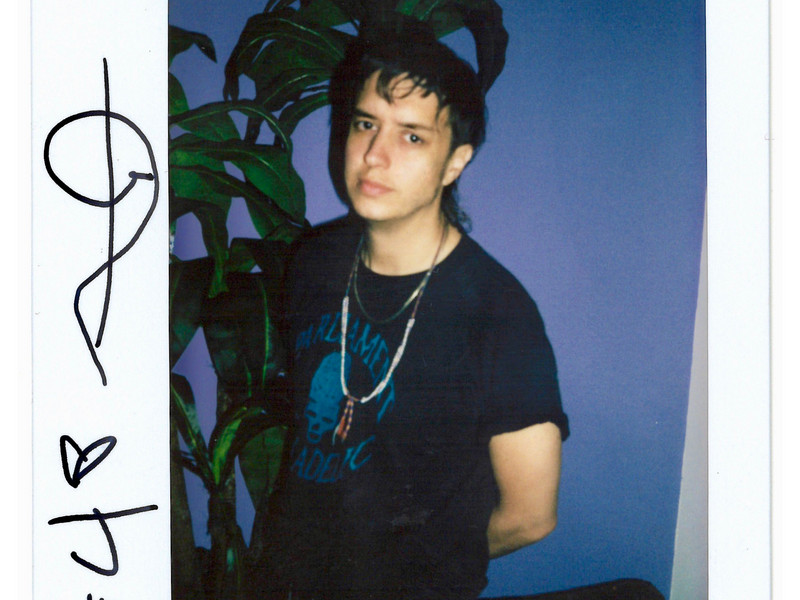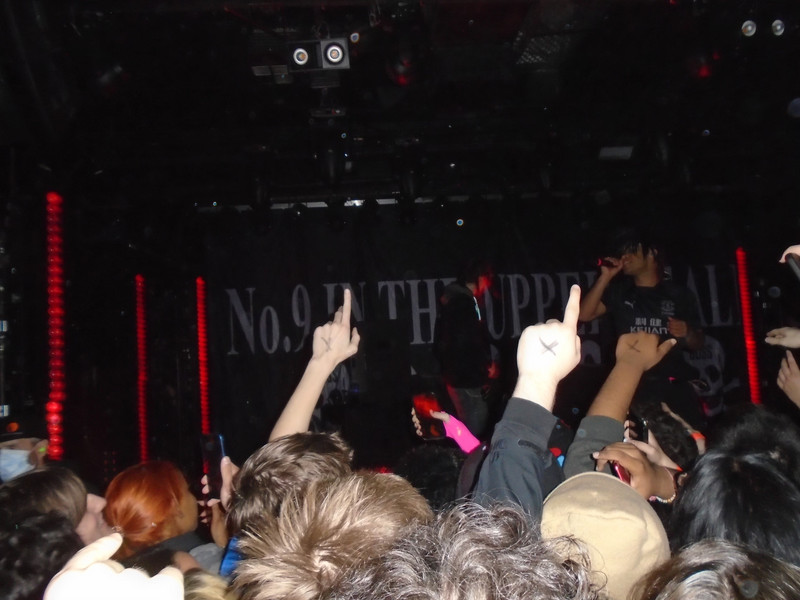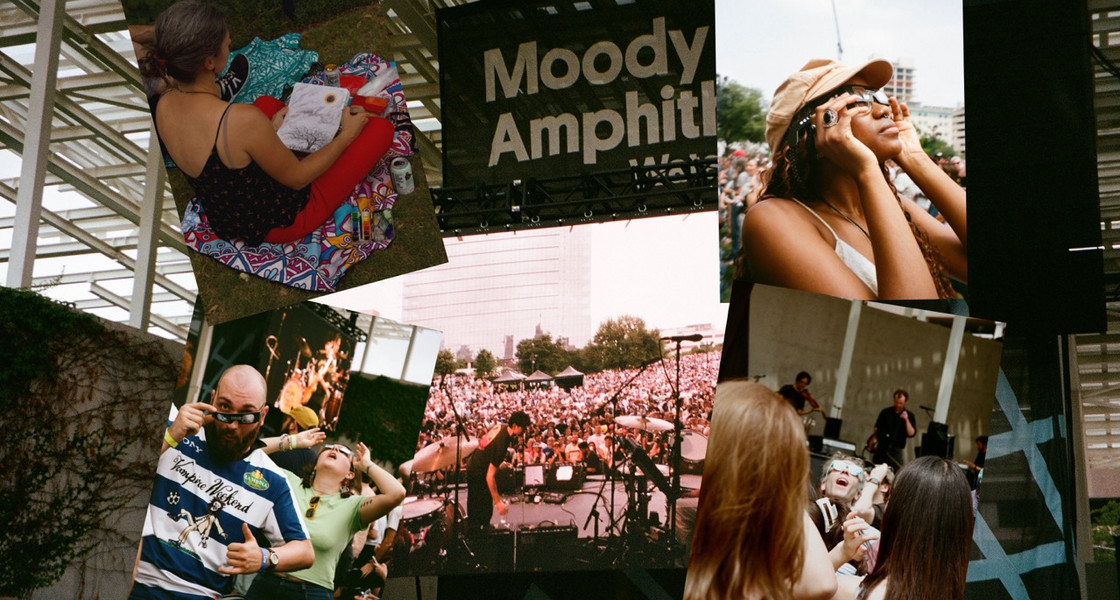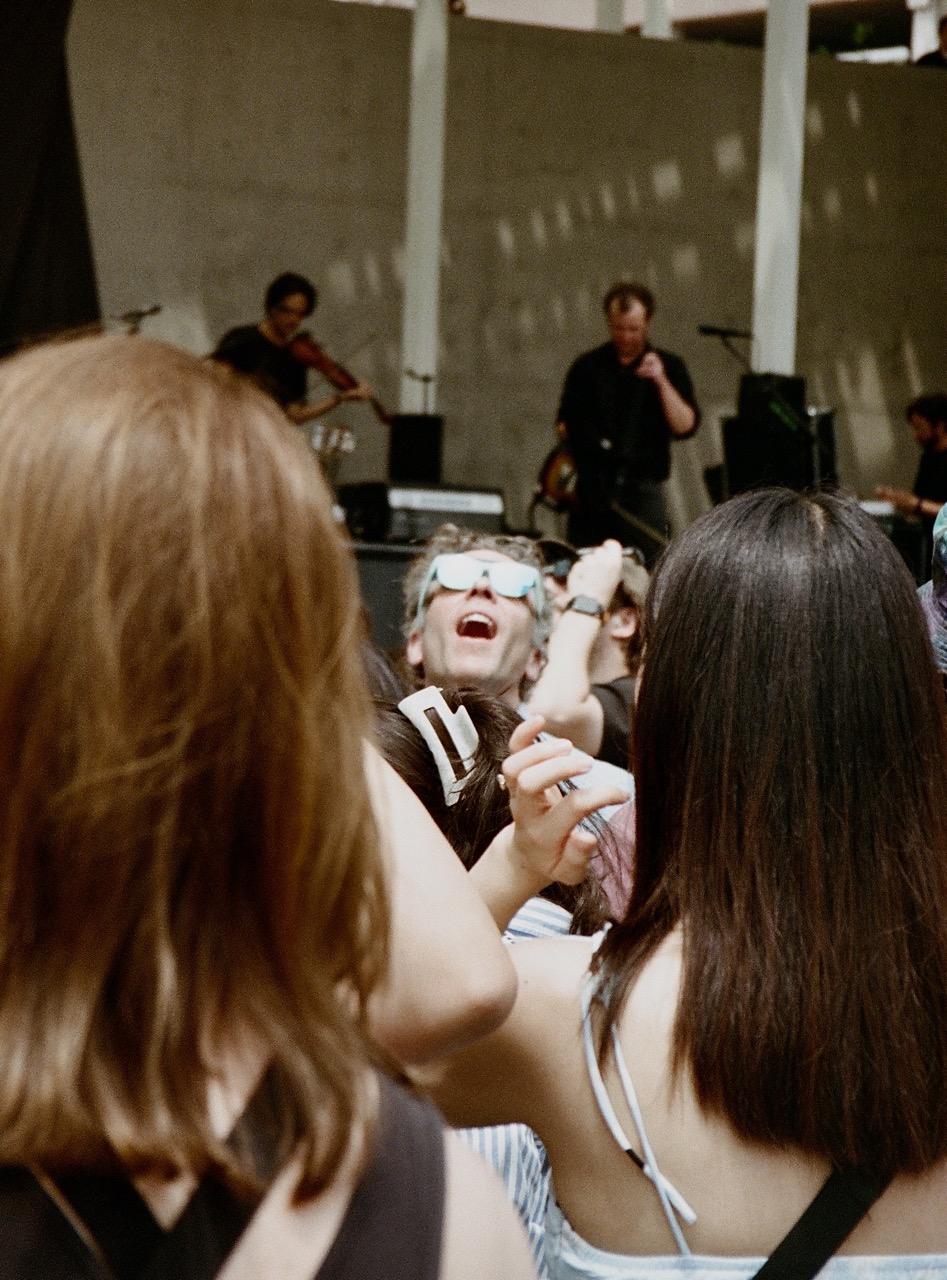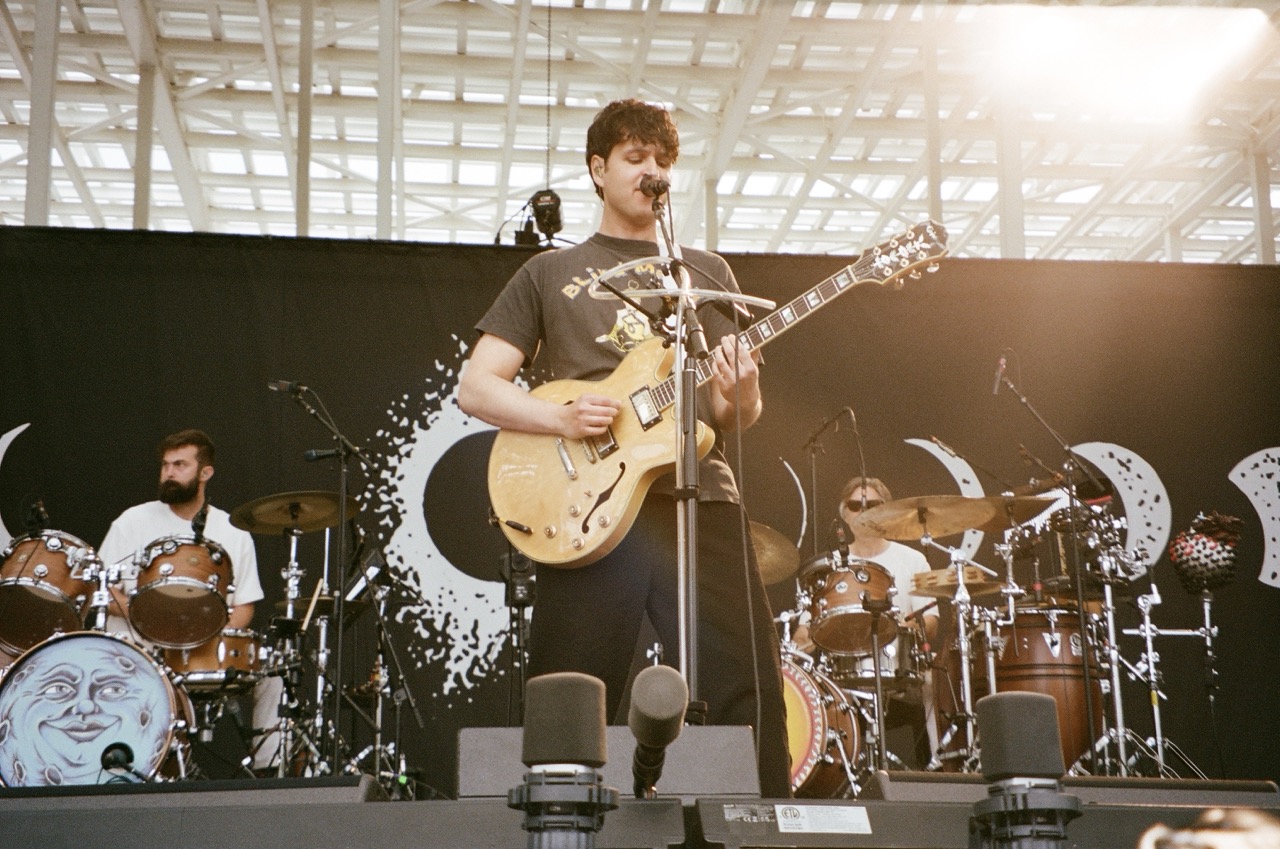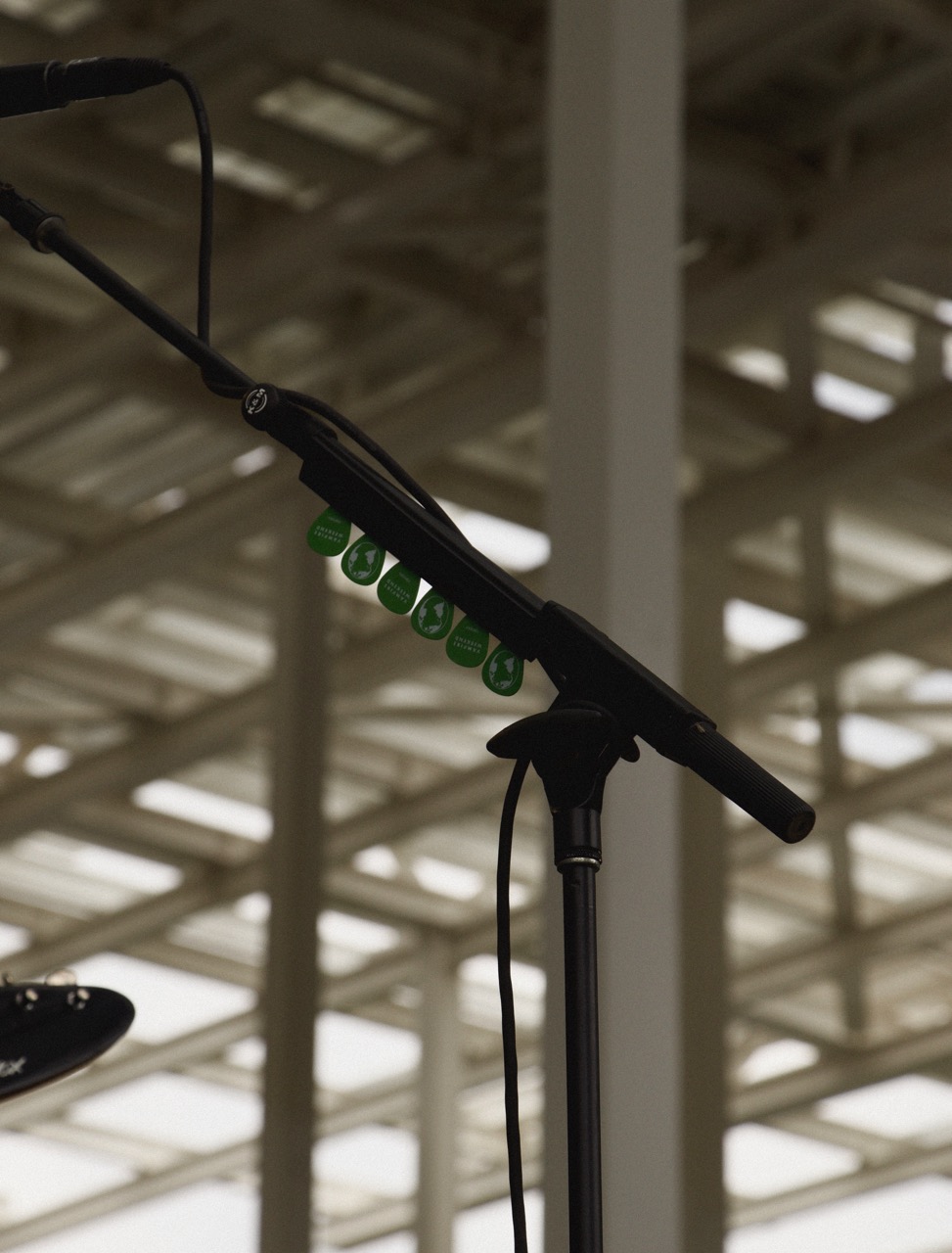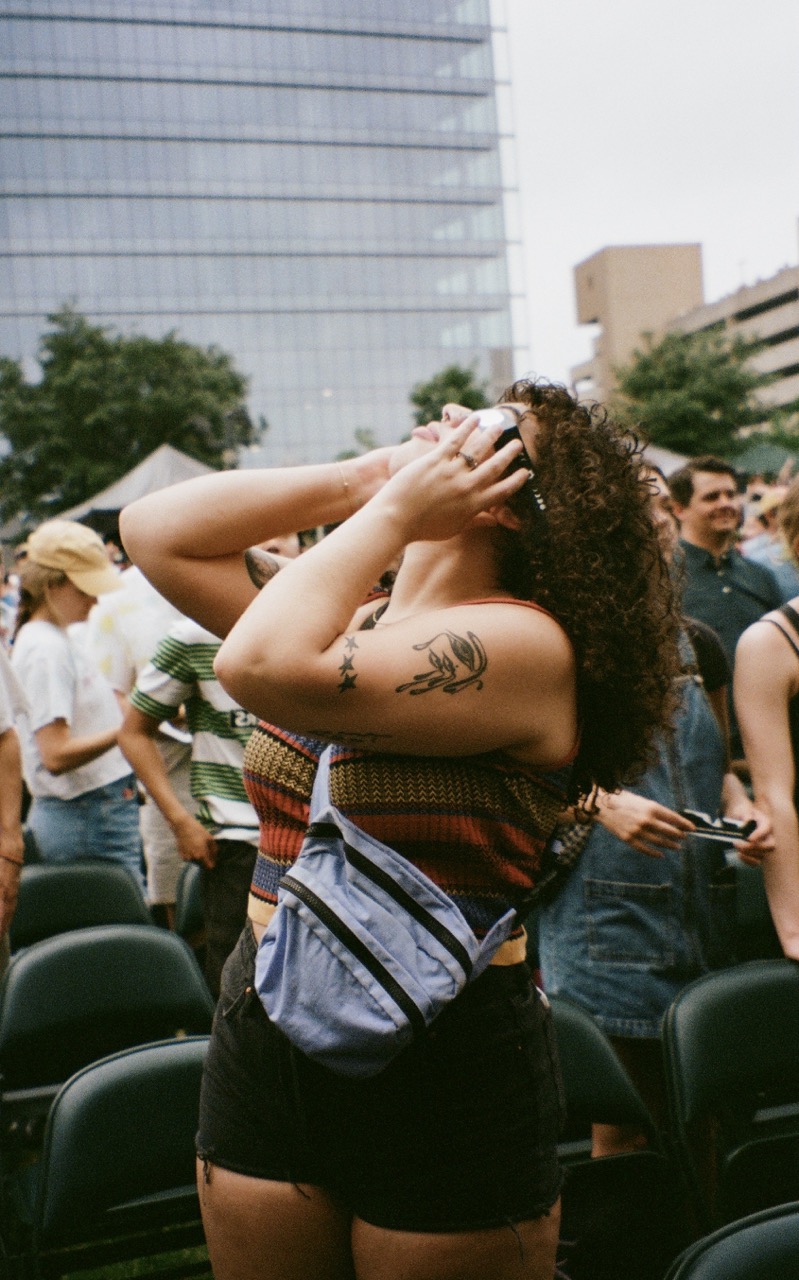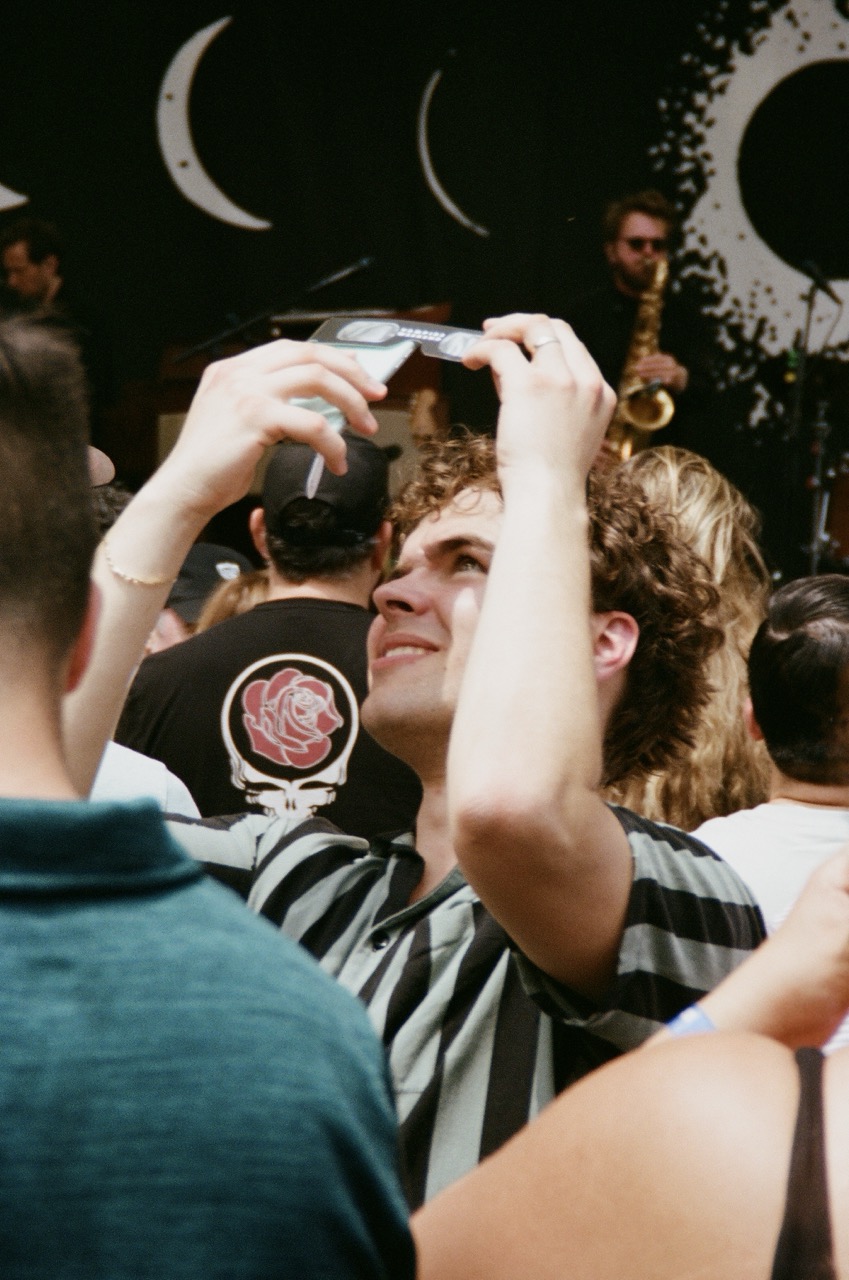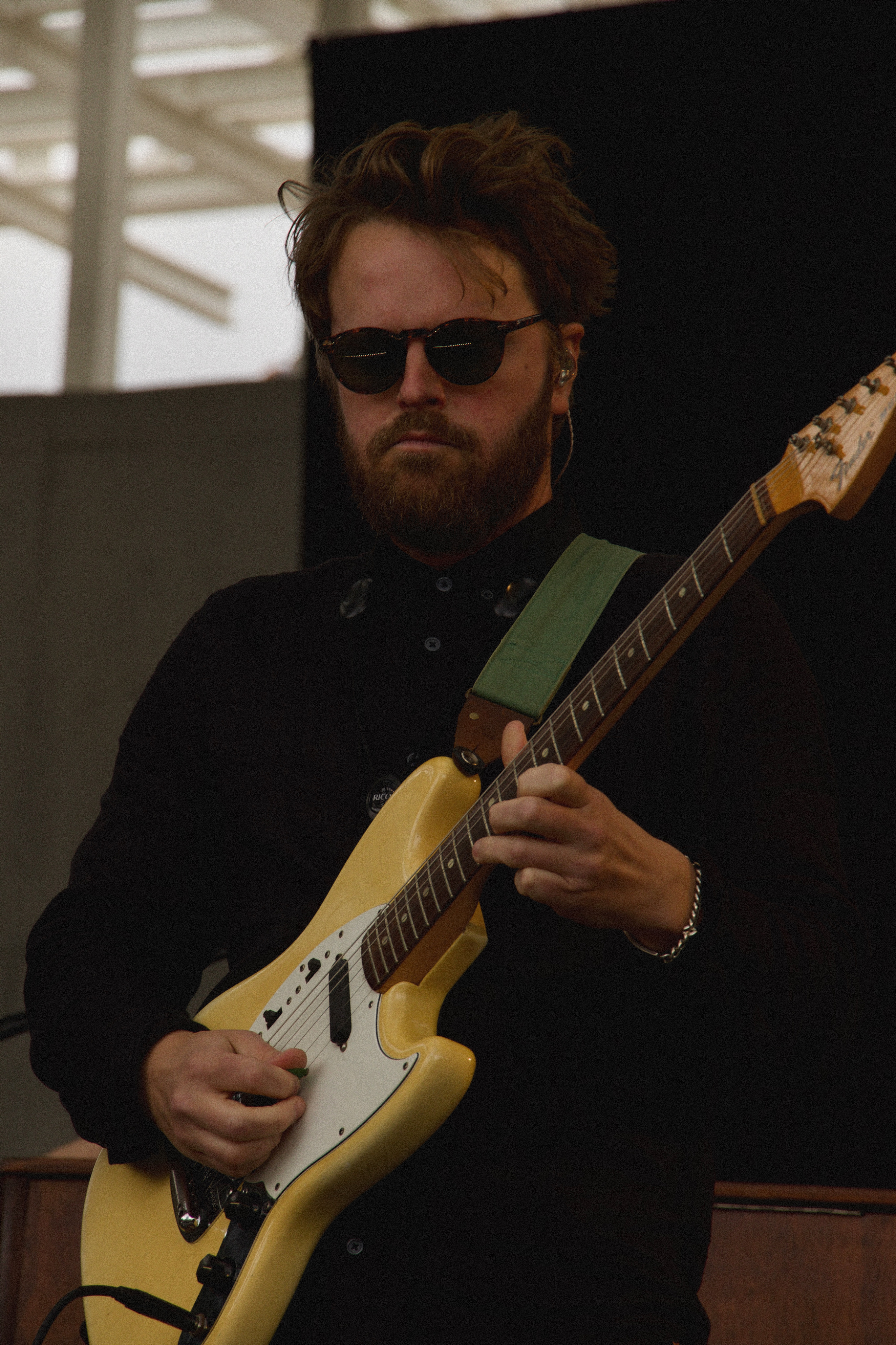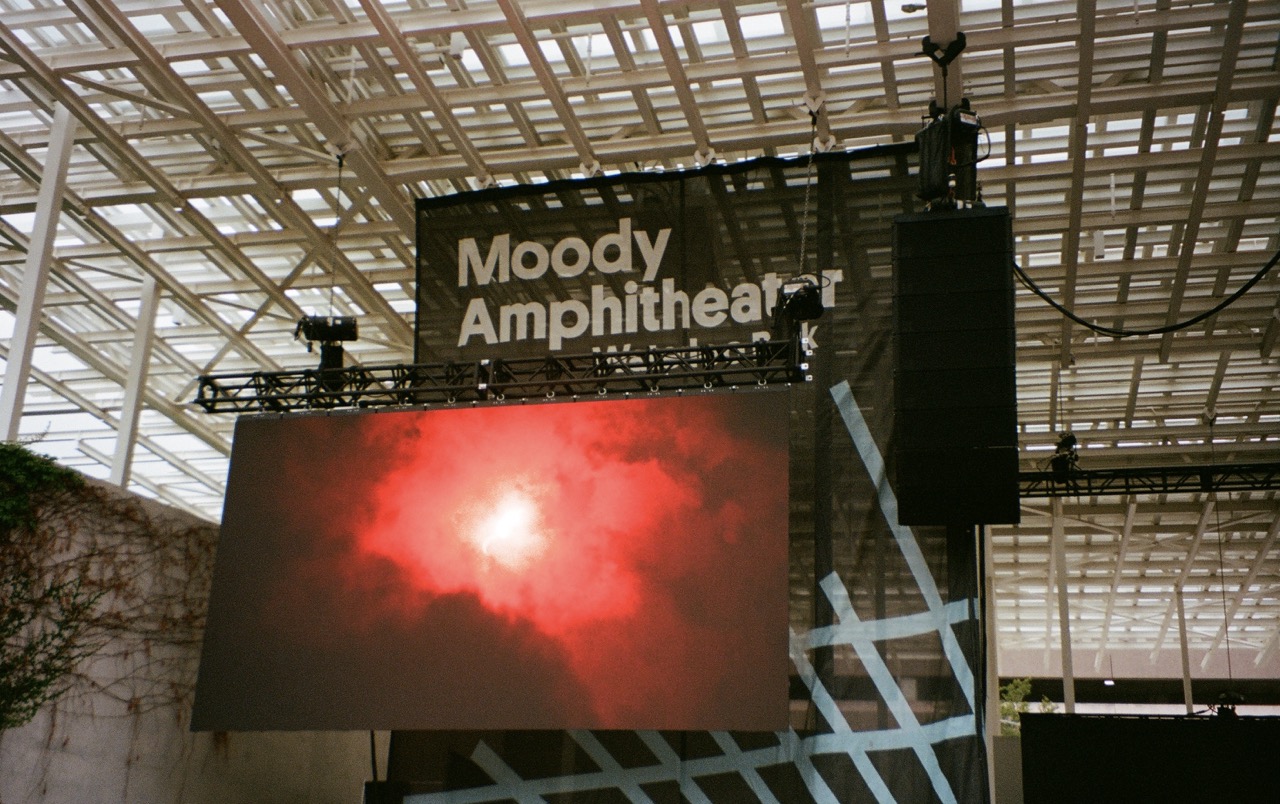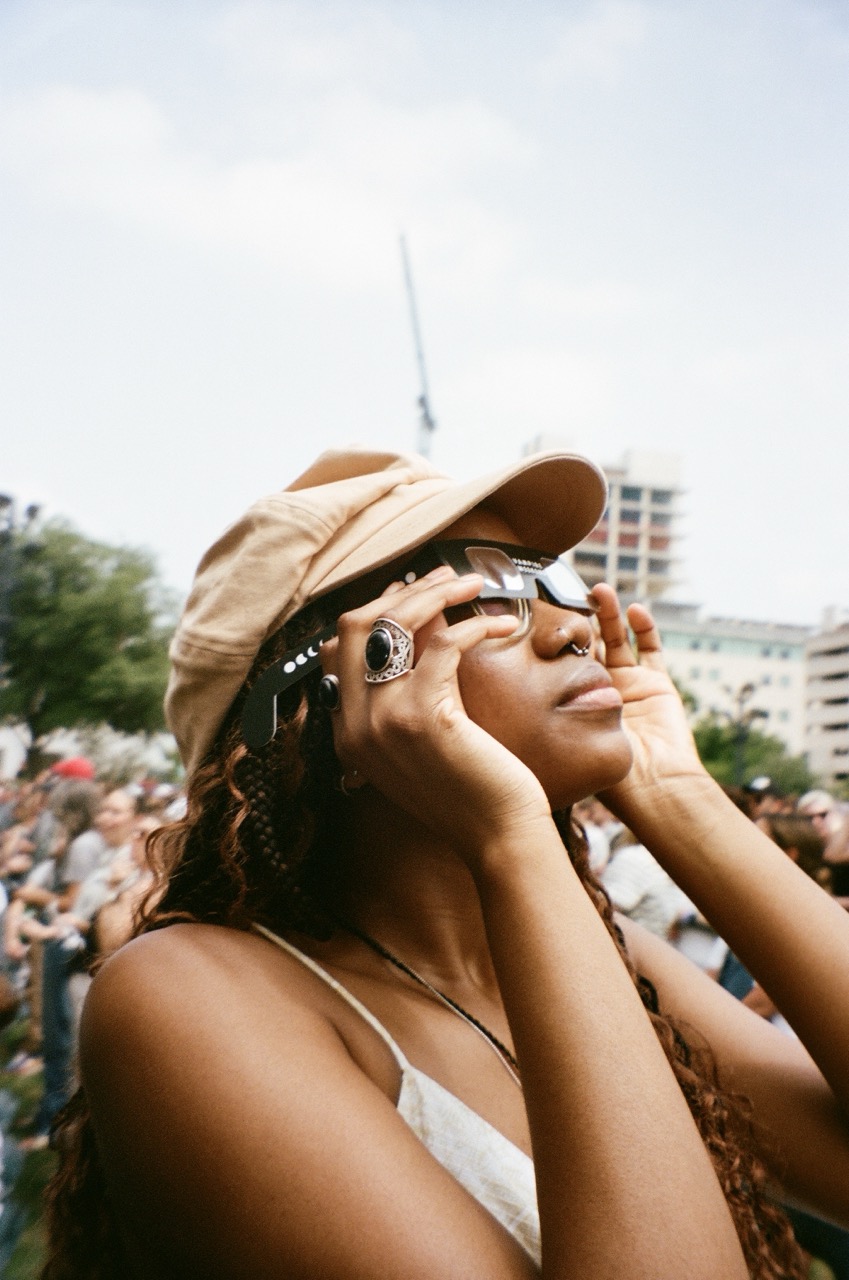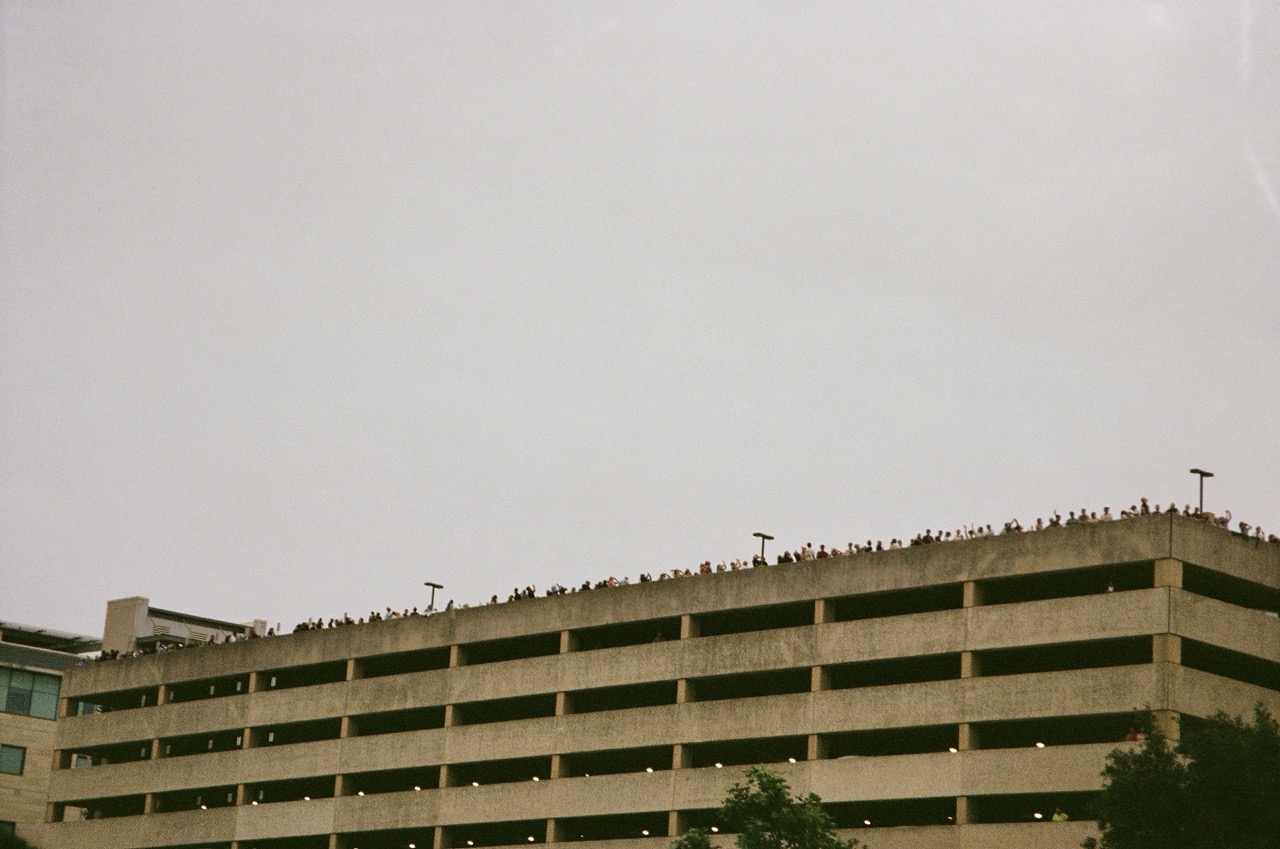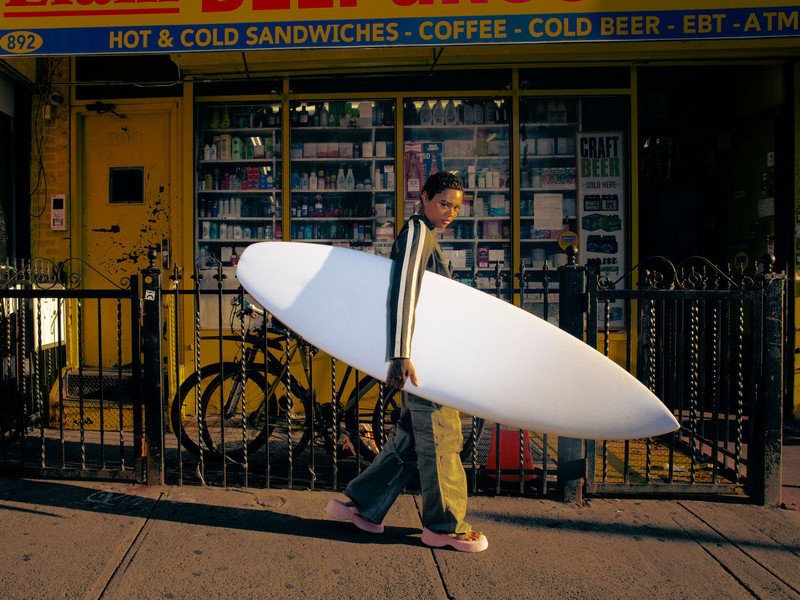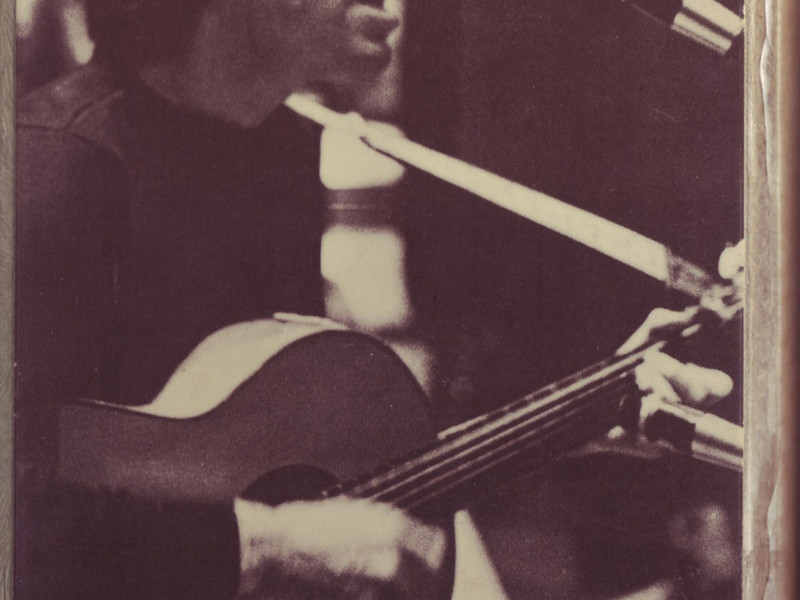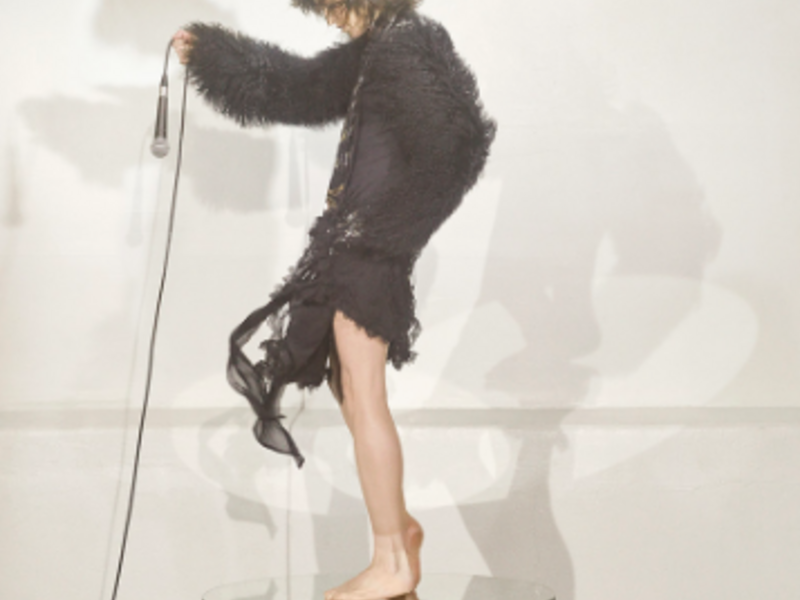All Roads Lead Back Home for Noah Guy
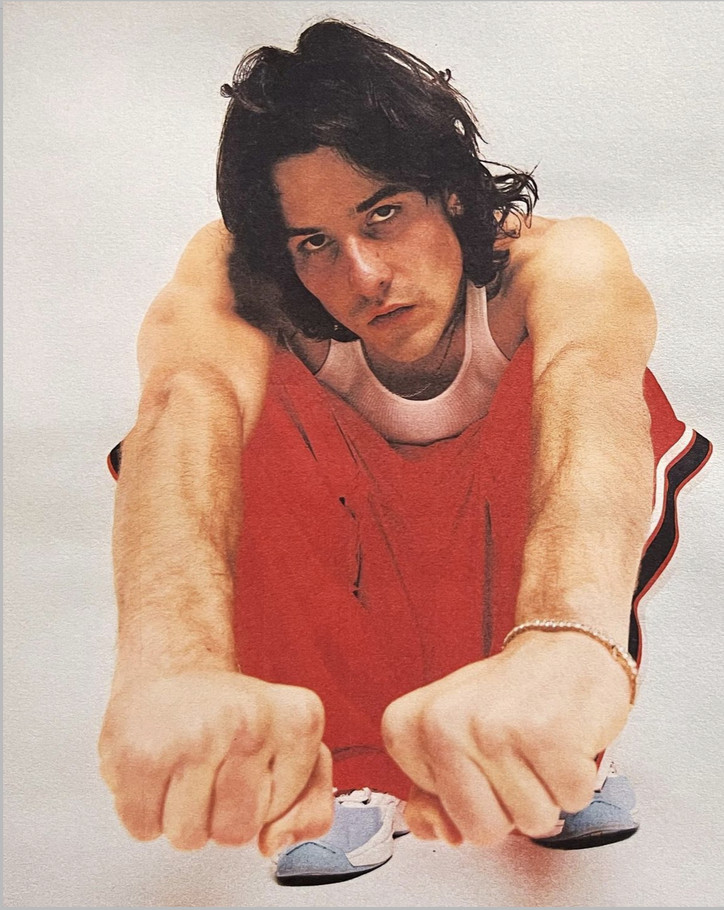
After teaching himself the music and songwriting process from scratch, Guy released his debut project Who’s Taken Time?! Act I — a reflection of the self. Now he brings a new layer to his artistry with the project’s B-side, Who’s Taken Time?! Act II — a departure from the “I” and newfound focus on the “we.” office sat down with Guy ahead of his first headline show in New York City to peel back the layers of his artistry, diving into Philadelphia’s influence on his sound and learning to embrace vulnerability.
Starting at the beginning, we grew up in the same place and I feel like a lot of your craft now is shaped by that upbringing. How did growing up in Philly shape your creative outlook?
When I first started to really think that music was the thing for me, I had a lot of resistance to even thinking about Philadelphia in the context of my creative process and my music. I think I felt a lot of resentment towards where we grew up. So I kind of spent my first year in LA being very ego-driven. It wasn't until I put out the first part of this larger Who’s Taken' Time?! Act I that I realized everything was really coming from that place. I was reflecting on relationships that I had sort of fallen out of touch with and, generally, that separation from East Coast and West Coast. And I think through starting to write a lot of records with that lens, I realized that I was totally wrong and I was writing from a very dark place. It was a very self-centered, self-focused place. There were a few big moments since then, like going back East and reconnecting with my brother, that changed my perspective. We had gone to the Brandywine River back in West Chester and had a day. It was fall, so the water was freezing cold, but it was this really amazing moment. This is my big brother and I hadn't seen him for almost two years. And also that river carried all these memories to us from when we were younger — but it was a place that we never really thought about as this sacred, special place. But when we were there together, we felt like there was some sort of — it sounds crazy — but some spirit amongst us. It brought me close to the land that we were raised on and it was a crazy turning point for me. I kind of switched up my whole flow. I scrapped the back half of the project and I rewrote everything after that journey back home.
And these new songs on Act II are all about community. They're about the ‘we;’ they're about togetherness. It was telling stories that weren't just about myself or my struggle, whatever that is. It was an appreciation for everyone that's there for me in my life. And I think also sort of a quest for community, bringing people in and stepping outta myself. I also just think it’s cool to care about things. I mean, I always cared and had so much love for home, but I think I just was able to finally remove the resentment and realize that this place is actually so important for me and my growth and it's not something that I want to really erase from my past.
If you could go back and tell high school Noah anything, given your accomplishments now, what advice would you give him?
I think that I was very scared. I felt like there was only one practical path and that was just getting the four-year degree and not really leaving a lot of time to reflect on what I really wanted to do. I think it was really hard for me to be fearless about being vulnerable. I was so afraid of being vulnerable and sensitive around other dudes in our grade. You know, there were social structures at our school, at least to me, in my head. I think I had a hard time relating to that. So I would just tell him to just be very fearless about the things he loved. I always loved music. I always loved film and the intersection of those two things. And I always loved singing. And I think towards the end of high school, I got a bit more open to kind of embracing those things.
But there were so many years where I held back when I was really pushing for basketball. That was, initially, the thing I wanted to try to do in college. I always think back to this instance. I was posting these Vines of me singing and — this is so crazy that I'm telling you this story. But I was thinking about it the other day; I had posted a Vine beatboxing and then I did a little singing moment. It was this cute little vibe. And then my basketball team saw it when we were traveling for an away game and I just got roasted into oblivion. I was just like, 'Okay, no music.' I was beatboxing for the acapella club though, 'cause that was still kind of 'cool.' That was sort of permissible. But it took me a really long time to break that circuitry. I think it's about just being fearless with my belief system and not being afraid to be a vulnerable dude. Being vulnerable and being sensitive doesn't make you weak. I think that's being a man. That was also a lot of what this project was for me — thinking about my masculinity in those terms as well.
When you're 16, it just seems, I guess at the moment, so much cooler to be like everyone else. And sharing music, sharing writing, sharing anything that is an art is really personal. I think that when you're that age, you don't want to let people see those parts of you. And then you get older and realize it's so much cooler not to be like anyone else.
For sure. And now that I've had time to sort of reflect on it, I've also found so much love in my heart for everyone we grew up with. I see them on my timeline and it makes my day to see what everyone is doing now. So I think it's also recognizing that this path isn't this miraculous thing that I'm doing. It was what I was supposed to do. You're supposed to create and make art and do that to the best of your ability, but there are also really incredible things that other people are doing too. We're all just figuring it out.
How did it feel to record your debut EP from your childhood bedroom, after experiencing such a life transition and returning back to where it all started? That was in 2021 — how have you changed since then?
It was such a wild experience. So I was going to NYU and then when everything went online, I just couldn't justify paying an NYU tuition. And then there was an opportunity for work so I went home. I was very fearful of fully committing to music. But through this bizarre kind of silver lining of the pandemic, it sort of forced that hand for me. And I went back home 'cause I didn't have anything to do, like all of us. Every day I had this setup — and this is such a privilege, right? The ability to have my parents host me and support this new creative thing. I'd never recorded myself before. I had no equipment. I'm like a grandpa with technology, so I had to learn the bare essentials of how to just get my voice on a microphone and I was using Garage Band. I had this $15 Walmart microphone and I wasn't taking it seriously — it wasn't a very professional sound. But I was really able to learn a lot about songwriting. And I think I started to find my voice through that project. It was four records I had made over a span of maybe three or four months before moving to LA.
That was also around a time when I really started to do a lot of music listening as well. Music from Philadelphia. I really fell into this whole deep dive during that year. Philly’s music history is just so rich and I had always grown up listening to Motown and loving it. But I didn't even really know where these songs and these sounds came from. I had gone to a bunch of record shops in Philadelphia during that time and I would crate dig and find things that were inspiring to me. Hip-hop became a huge thing for me as well. I was studying a lot of East Coast hip hop and also a lot of Americana and folk music that came from Philadelphia. For instance, there's this one artist who has really bled into my whole listening experience and the inspiration for this whole Act II. Jim Croce was this Americana, folk singer and songwriter. An absolute legend that has some of the craziest hits — if you heard a Jim Croce song, you'd know. But he grew up right down the road; he had a house on the Brandywine. I kind of became a music historian over those months and fell in love with Philly music and Philly music history. I think that became the foundation of what my sound is.
Your sound is a unique blend of R&B, hip-hop, and soul. Who were some of the earliest artists you remember filling your playlists with?
The first CD I ever bought was this album called The Ecstatic by Mos Def. Mos Def is one of my favorite rappers of all time. I was very curious about music discovery from a really young age; I got that in the fourth grade. That album really shaped me a lot. But really the first music I listened to was my dad's Motown's greatest hit CD — it got stuck in his jeep when I was a kid. He was so resistant to getting a new car [laugh] so for pretty much the first 10 years of my childhood, it was the only thing we were listening to every time we'd go in the car. It was The Temptations, Marvin Gaye, just a lot of these classic soulful pop records from the sixties and seventies. That's the music that I always come back to. So most consistently, it's these songs that were super soulful and also just very catchy. But they were presented in a very creative way — with the vocal layering and the dynamics of it all. That all led me to think today, 'How can I make something that's a little bit more left of field, but that still has this sort of universality?'
What did you feel you were uncovering about yourself through that process of writing and creating Act I?
I started to notice, as I was moving through creating these songs, that I'm pretty good at self-isolating and cutting myself off from people. People that maybe really love me and want to be there to support me. But, for some reason, I was very resistant to that. And, at the time, I also thought that part of the craft of music-making was this idea of struggle. That starving artist mentality that I needed to adapt at all times in order to make the best music. I think I thought that music couldn't really spawn from a happy place, at least for me. I needed to struggle through life in order to find those golden nuggets. So I started to catch myself in the act of doing that. I met a lot of incredible people over my first year in LA — but it definitely was really hard. I was working multiple jobs and certainly coming to terms with the fact that this music stuff is not easy. I didn't have rose-tinted glasses anymore about it. I realized that this is a lot of hustle and definitely not for the faint of heart. And through making those songs, I kind of started to push away from people. I had a hard time really holding on to connections and I was spending a lot of time on my own. I got to this point where I felt like the best music needed more than just me coming in and servicing the records. I needed to tell stories that weren't so heavily inward-facing and brooding.
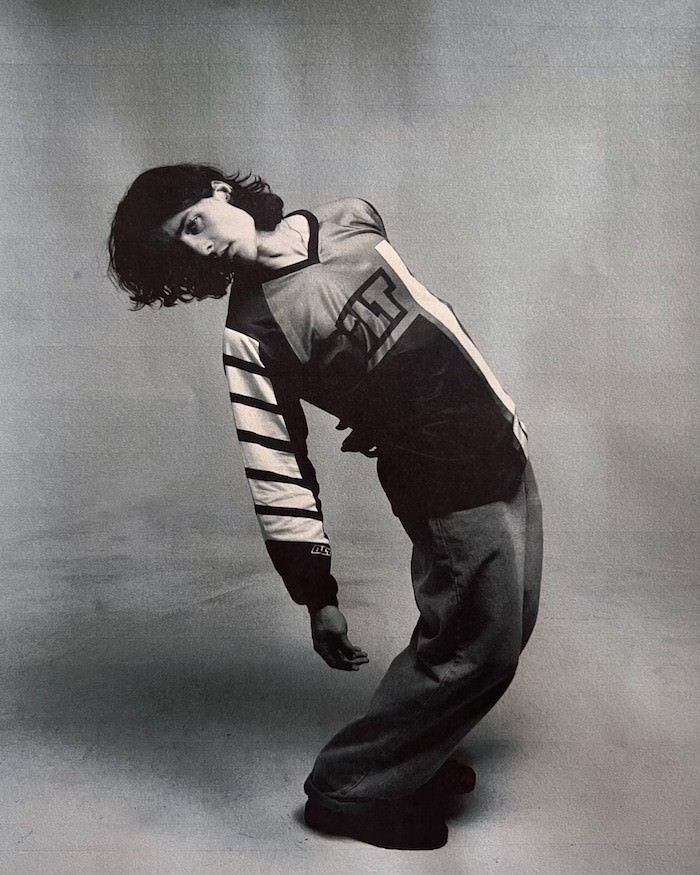
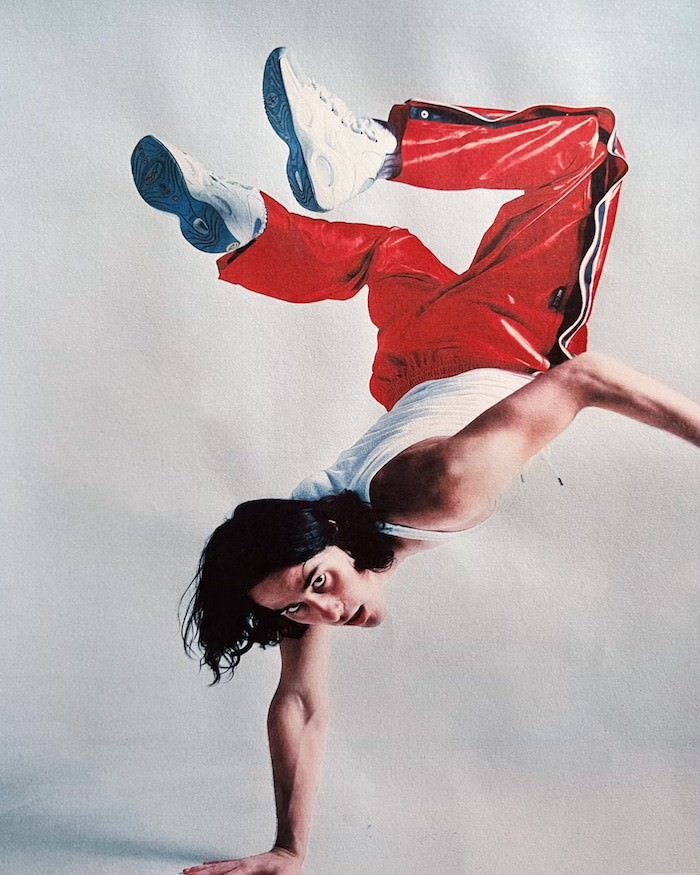
Tell me about one of the hardest songs to write from Act I — how did it feel to confront certain emotions in that process and really create professionally for the first time?
I'd say probably the song, 'Small Talk Carolina.' It was the last song I made for the project, but it was sort of my first moment where I was speaking on and speaking directly to Philadelphia, folks back home, and my feelings toward those things. Carolina was this fake muse that represented a lot of friends — I had a couple of people in mind, specifically, from my childhood. I used the Brandywine as this motif through it all. This idea of purifying and washing away. It was really difficult for me to write. It brought forth stories that were uncomfortable for me to talk and think about. But it became this turning point. Once I finished up the record, I was like, 'Okay, I think there's something to this.' It was my first moment of really speaking about anything beyond just myself. I was talking about other people. I was telling the story of what a privilege it is for me to be out here talking about myself and this sort of ego journey that I experienced. There are people everywhere who may feel the same way I did and want to express themselves creatively. But they may not have the means to get out and create and explore. It really comes down to what a privilege it is to be an artist. Or to have the ability to at least start and make this journey happen for yourself. So that was the first moment where I really started to think about community in those terms. I woke myself up from the idea that the world was against me.
I think a lot of artists eventually have that discomforting confrontation. It's this feeling that the work won't resonate with people unless it's coming from this deeply emotional or pity-invoking place. But you needed to go through the process of making Act I to come to that revelation. You mentioned that Act I was more of a meditation of the self, while your recently released Who’s Taken Time?! Act II is more collaborative. Tell me about some of the collaborations on this project and what they mean to you.
After I wrapped up Act I, there was a two-month in-between period where I made the decision that the five other songs that I thought were gonna be sort of the B-side of this project, didn't represent the story I wanted to tell anymore. It was a perspective change, even outside of the music, just generally in life. And I'm fortunate that my closest collaborator and executive producer is like my brother. I work on all my stuff very intimately with my roommate Choob — Devon is his name. We first met online and he was the first person to send me a beat pack. So I went to him first and I was like, 'Yo, I really feel like we need to refocus our efforts here and try to find some new songs to make because I just feel very exhausted by the ones we have.' I thought there was a better story to tell.
So we went up north to this little cabin in this town called Lake Arrowhead. We needed some sort of separator and we were there for about a month. We started inviting friends up from Los Angeles — session instrumentalists, other artists, my friend Amaria, Braxton, who's this saxophonist and one of my heroes. He's an incredible jazz musician. They all came up, even folks that weren't really specifically working on the records, just people to spend time with. And that became the overall ethos of the project — it became very clear that we wanted to do something that was very community-driven. And we wanted the records to sound that way, so we really leaned into a very live and raw sound. We tried to leave things very unadulterated where there's not a lot of reverb. There's not a lot of things that my vocals are hiding behind. Act I was so busy. So I think taking time and holding space for friendship and just slowing things down during our time in Arrowhead, also bled into the song structure generally too. We just let the moment breathe. So I genuinely think that the spirit of that experience, on a friendship level and on a human level, that exactly translated to what the records became.
I feel like when you take on a creative undertaking, you become so prone to doing so many things at once or trying to supplement one thing with another. And it's just interesting that you expressed how things became fuller when you slowed down.
Do you feel like you're able to still create space to be mindful and present and slow down? Or do you think that is something you wrestle with? Because for me, it's still a journey. There's a lot of growth there that needs to be done.
I feel the same way. I think it's really hard. I'm not really thinking about that first achievement because I'm already thinking 20 steps ahead.
That's the whole crux of what the project was. Taking time to appreciate your accolades or the milestone moments you're reaching. It was like, 'How are you taking time to actually process what's going on?' It's so hard when the finish line is always moving for us, you know? Which I'm sure it is for everyone — it's a universal experience — but I think you definitely feel that way when you're doing something that's a little bit more unconventional or creative.
This industry just breeds a lot of comparison. So I think that's also part of it and part of being present. It's near impossible to do so when you're also focusing on other people, but it's also near impossible not to do that as well.
I think that the ultimate lesson is that no journey is replicable. You have to just be so dauntless and recognize that my journey is my journey and however that shakes down, that's what it's gonna be, you know? And I'm gonna just keep putting the work in and that's really all you can do. I think we do our best work when we're feeling more and thinking less.
You studied film at a point in time, which explains your heavily artistic and narrative-driven visuals. How do these other elements, like your artistic persona and even your personal street style, shape you as an artist — especially in this social-media-driven era?
The bane of my existence has been short-form content. I think we're in such a bizarre world right now where all these new artists, including myself, are coming up in the TikTok era. But prior to this, there was the blog era. There was SoundCloud — but I think it was very show, not tell. Now it's very tell, don't show — and tell everything to everyone. Tell them daily and find the easiest, quickest, most clickable way to do so. And I think when you're the one doing all of the talking, you don't really leave much for yourself as the artist. Some of that magic and some of that allure kind of goes away. That's why I think it's so hard to build a brand in this TikTok era — at least it's been challenging for me. Of course, there are ways to do it and it's become a necessary tool. I'm always thinking, 'How can I use this to my benefit?' I don't have the answers to that yet, but for me, I need to still be very committed to not sensationalizing my music. I just like the idea of making a really cool music video even though it's not really an era for music videos right now because I don't think the industry really rewards a great music video in the way we used to. But for your core fans who really love your music, that still matters. The ability to pair a visual with the audio experience — those things have always been two-pronged for me. I grew up loving film. That was kind of my first joy but I didn't really take a lot of time to share those interests with other people.
On that note, if there was a movie about you, what would it be called and who would you want to play you?
Well, recently I've been trying to get into my acting bag. I've got a couple of scripts I've been reading. But I think a throwback rom-com A-lister would be cool. Like Paul Rudd. I'm a pretty goofy, awkward person and I think he would translate that well. In terms of the name, I think I would just call it Who's Taken' Time?!
